Skyrim: 10 Things You Didn't Know About The Skaal | Game Rant

In the icy tundra of northern Solstheim lies Skaal Village. This tiny, snow-covered settlement is home to an isolated tribe, called the Skaal, who live in peace and harmony with the land around them. They're fierce and hardy hunters and survivors, yet a deeply spiritual people. Their ancient knowledge proves a vital asset in more than one Elder Scrolls storyline.
Despite the prominent role they play in Dragonborn, as well as the Bloodmoon add-on for Morrowind, many fans still don't know much about the Skaal. Few in-game texts mention them, and much of their way of life remains a mystery.
10 Divergence From Skyrim's Nords
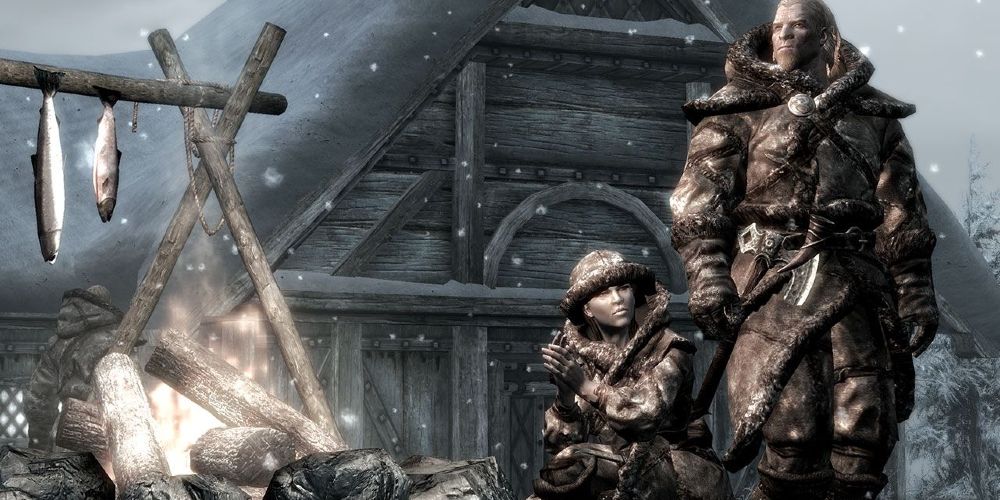
The Skaal people of Solstheim are Nordic in ancestry, but they are believed to have split off from Skyrim's Nords sometime during the Merethic Era. During this time, while the Nords were still under the rule of the Dragon Cult, a tribe from the mainland settled on Solstheim.
Over the next few eras, their isolation led to the Skaal developing a distinct culture and religion. Many consider their practices strange; however, these beliefs are informed by thousands of years spent in harmony with the land.
9 Monotheistic Religion
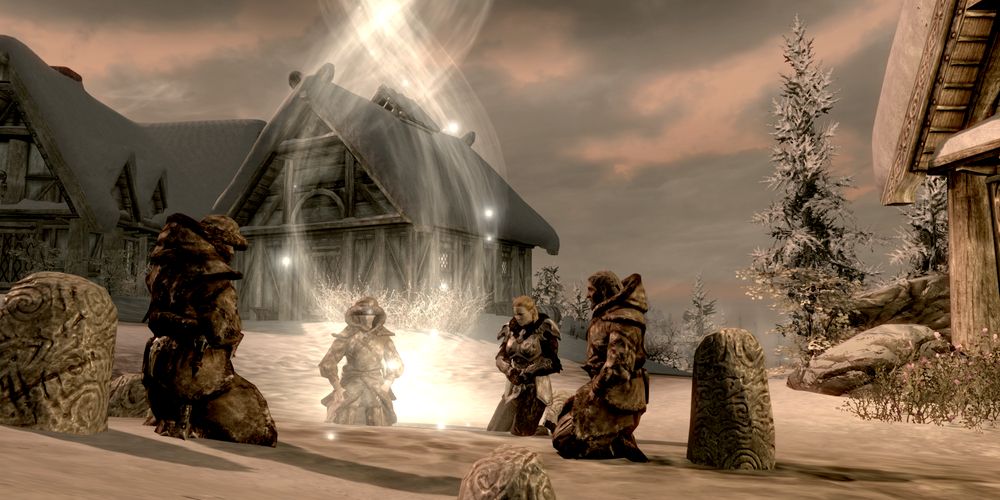
The Skaal are the only people in Tamriel who worship a singular deity: the All-Maker. This divine being taught the Skaal all the land's secrets, and tasked them with maintaining its oneness.
To the Skaal, the All-Maker is the source of all life. The spirits of those who die return to the All-Maker, who then shapes them into a new creation. Because of their belief in this reincarnation, the Skaal view death, not as an ending, but simply a point in the cycle of existence.
8 The All-Maker Stones
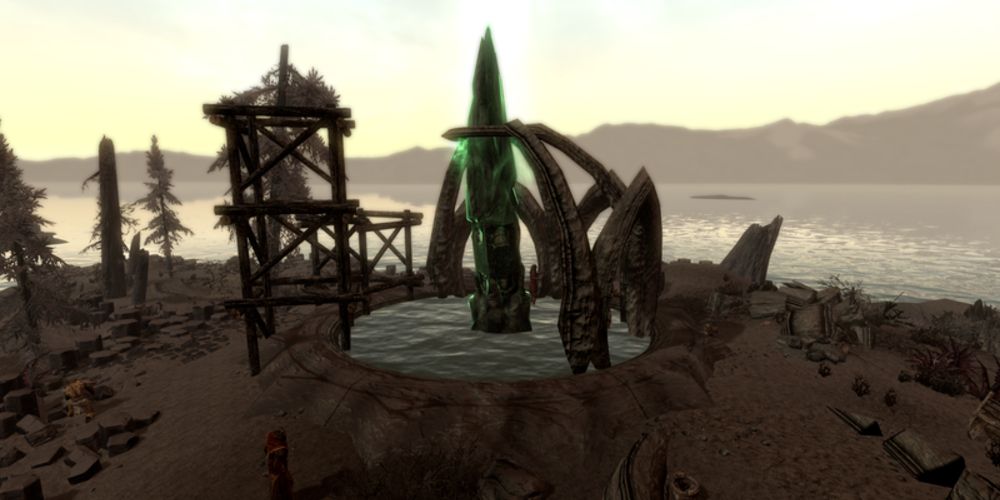
Across Solstheim, the Dragonborn can find towering stones humming with magical energy, similar to Skyrim's Standing Stones. The Skaal believe that these six sites, including the Beast Stone, Tree Stone, Wind Stone, Sun Stone, Earth Stone, and Water Stone, are integral to maintaining the oneness of the land.
In both Bloodmoon and Dragonborn, the player must cleanse some kind of corrupting force from these stones. Doing so helps heal the land from evil influences and allows the player to utilize the Stones' gifts.
7 Knowledge Of The Daedra
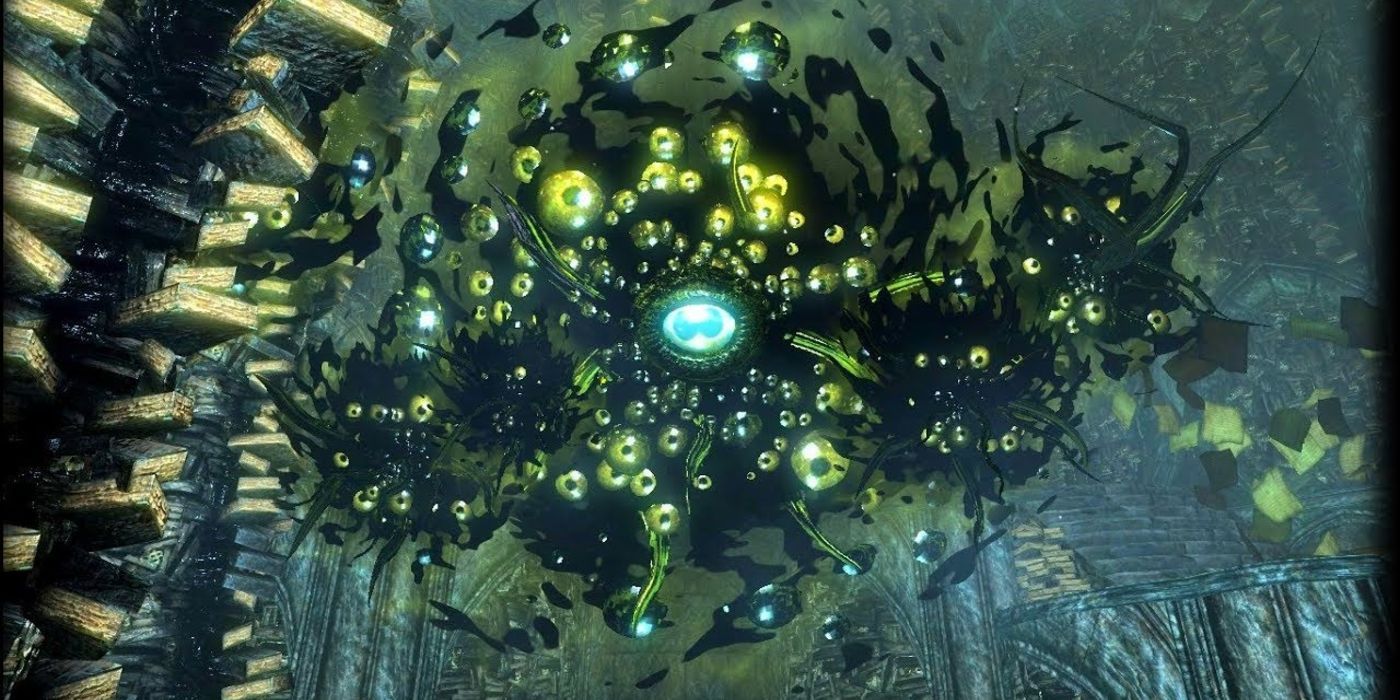
Though they worship only the All-Maker, the Skaal acknowledge both Hermaeus Mora (or, as they call him, Herma-Mora) and Hircine. To them, these beings are the opposite of what the All-Maker stands for.
Herma-Mora, to the Skaal, is the Demon of Knowledge. He thirsts for the secrets of nature that the All-Maker gifted to the Skaal, which they must protect from the Daedric Prince. Meanwhile, the Skaal view Hircine's creations of werewolves and were-bears as perversions of the All-Makers gifts.
6 The Adversary
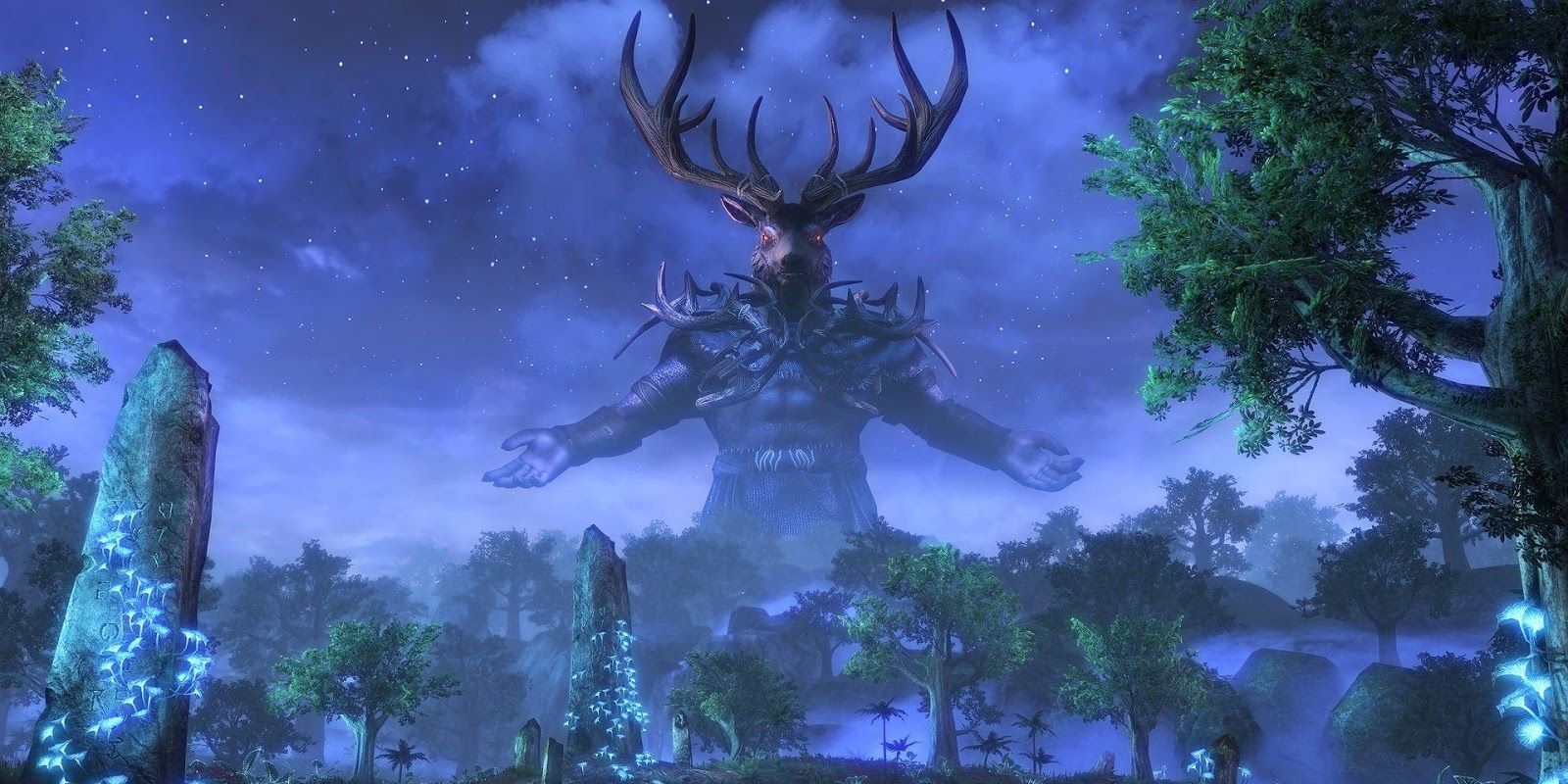
In addition to the All-Maker, the Skaal speak of an equal and opposite force, called the Adversary, who tests and challenges them. This force appears when the Skaal become lazy or take the All-Maker for granted. In Bloodmoon, for example, the Adversary steals the power of the All-Maker Stones.
The Adversary may be an aspect of Hircine, but other sources tie him to Sithis or Lorkhan. The Skaal often call him the "Greedy Man," as he desires to take the All-Maker's gifts for himself.
5 Laws And Punishments
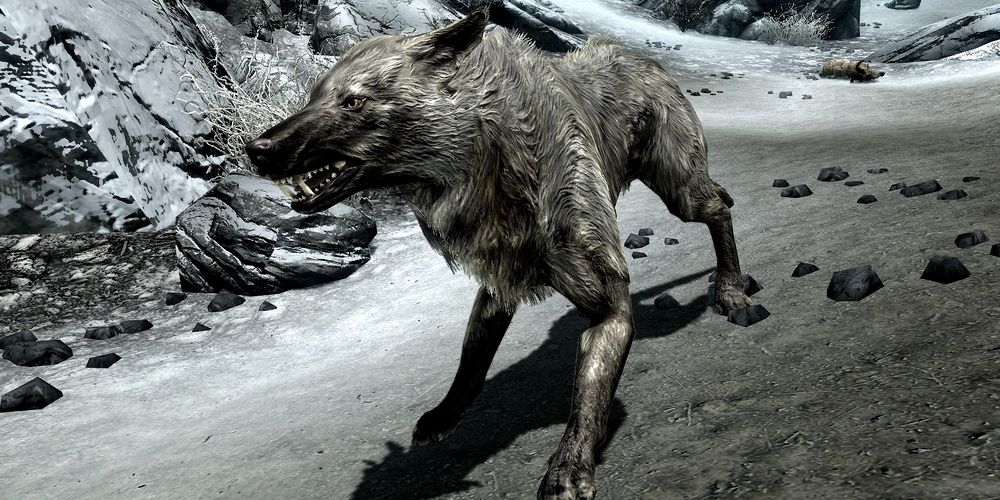
Due to the limited resources on Solstheim, the Skaal consider stealing a heinous crime. Violence against others is similarly intolerable; force may only be used in self-defense. Such wrongdoing is met with the ultimate punishment, which is either banishment or sacrifice to the wolves, or both.
Skaal who steal from or attack their own are cast out, never aided by their tribe again. The Skaal believe that such a sacrifice cleanses the soul of its wrongdoing. This allows the spirit to be purified and reborn, no longer carrying the weight of the person's sin.
4 Hunting Philosophies
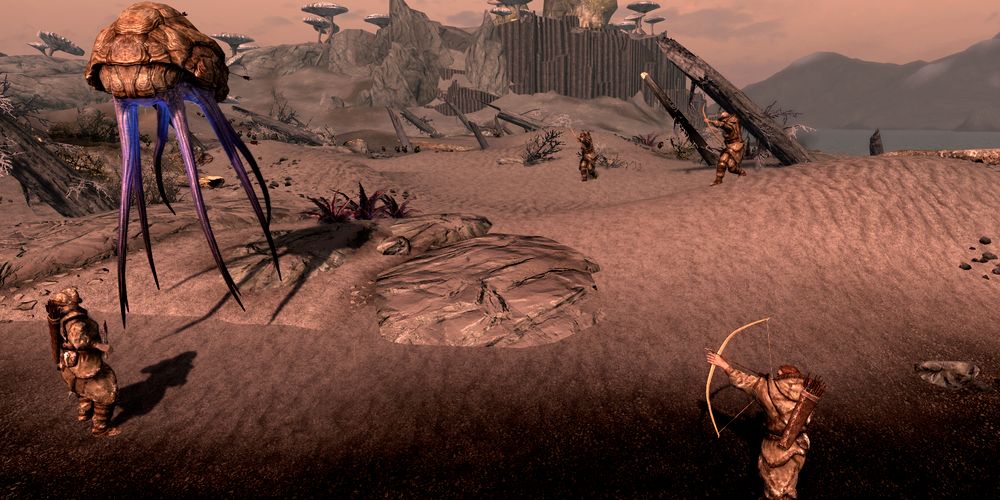
In the Skaal tradition, hunting requires a great deal of prayer and introspection in order to preserve the oneness of the land that the All-Maker works to protect. The Skaal believe that all beings have a right to live as they desire, and do not take animal lives lightly.
Hunters must ask themselves if it is necessary to kill this animal since they only take what they need to survive. If they do proceed with their kill, Skaal hunters give thanks to each animal for its gifts.
3 The Ristaag Ceremony

Bloodmoon players may recall this ceremony, a means of cleansing and restoring the land. To perform the Ristaag, Skaal tribesmen gather at nightfall and, using a unique totem, summon a beast for a ritual hunt. They must find and kill the conjured Spirit Bear and bring its heart to the shaman before sunrise, or risk the All-Maker's displeasure.
As they do in Bloodmoon, the Skaal may perform this ritual during times when the Adversary is active. Its intention is to demonstrate gratitude to the All-Maker for his gifts.
2 Origins Of Stalhrim

Plenty of players have used Stalhrim to craft weapons and armor, but few know where it comes from. During the First Era, Nords who fell in battle during the War of the First Council in Morrowind were brought to Solstheim for burial.
Here, the Skaal used the magic of the land itself on their icy tombs to keep them safe from grave robbers. This enchanted ice later became known as Stalhrim. A sacred substance to the Skaal, the art of crafting with it is now known only to them.
1 Beliefs Regarding Draugr
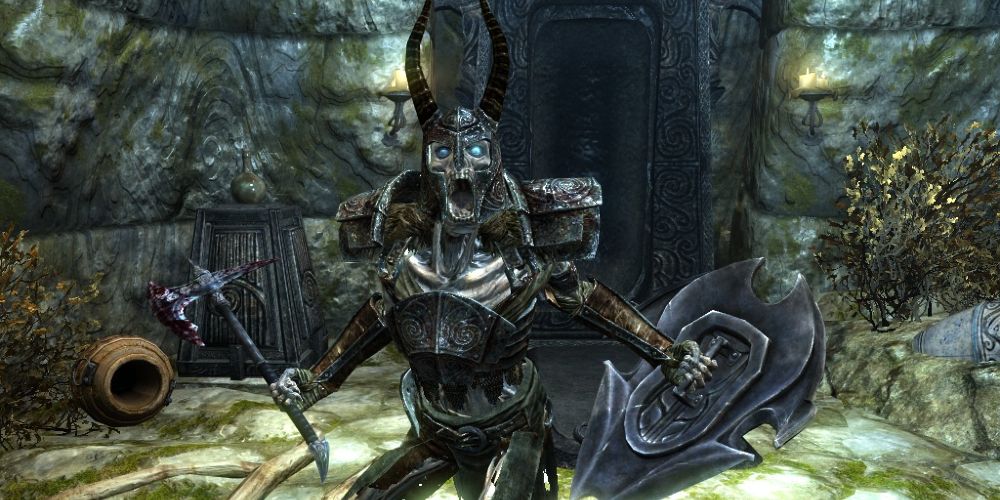
Draugr, undead servants of the Dragon Cult, walk the crypts of Solstheim just as they do on Skyrim's mainland. However, the Skaal have a different rationale for the existence of these unnatural creatures. They believe that the draugr were once warriors who resorted to cannibalism, causing the All-Maker to curse them with undeath.
In Skaal Village, young men must hunt and kill a draugr as a coming-of-age ritual. Success in this test of strength proves their worth and strength as men of their tribe.

Post a Comment